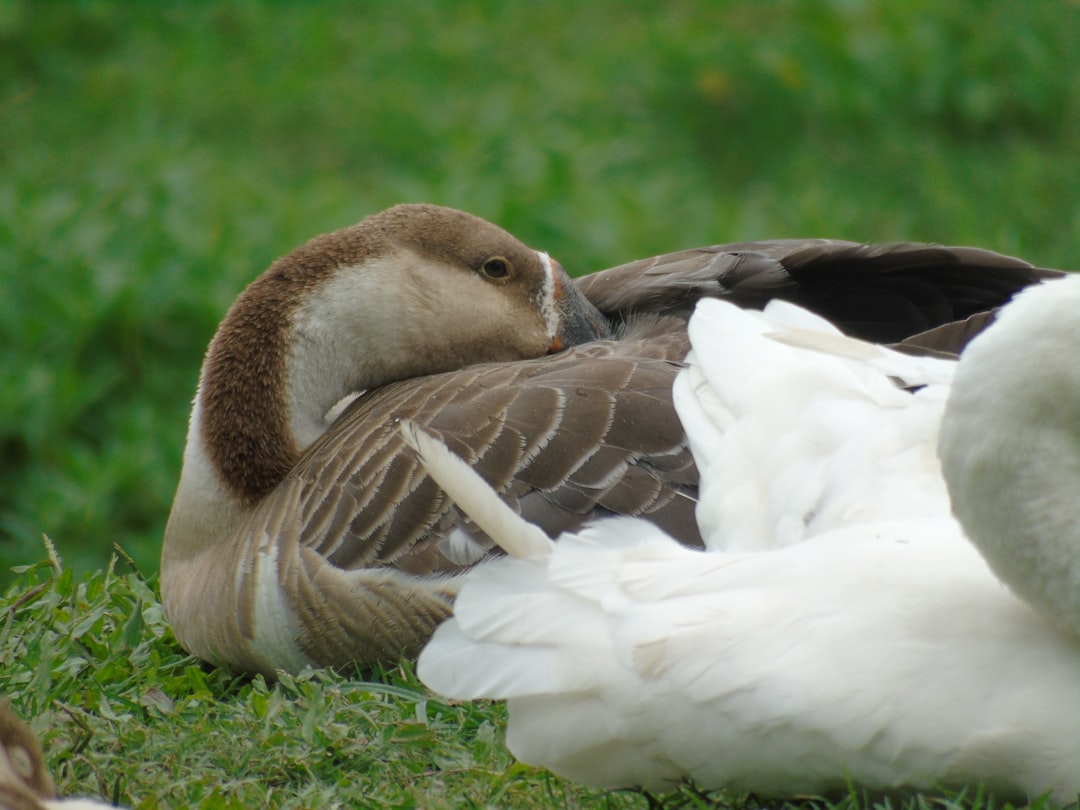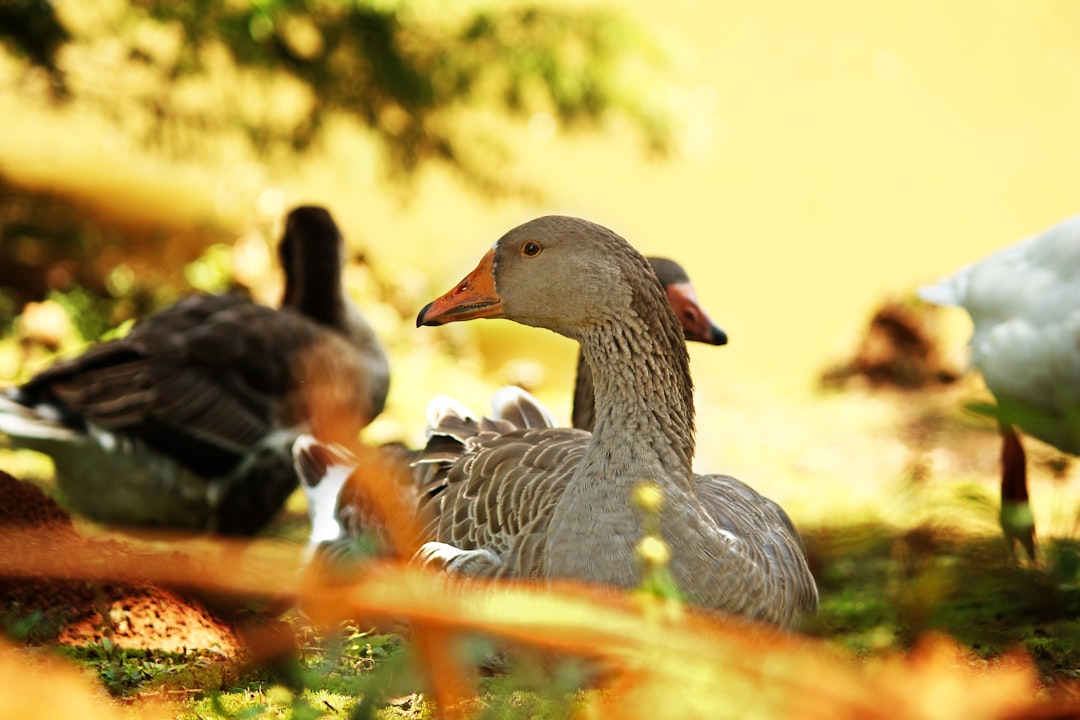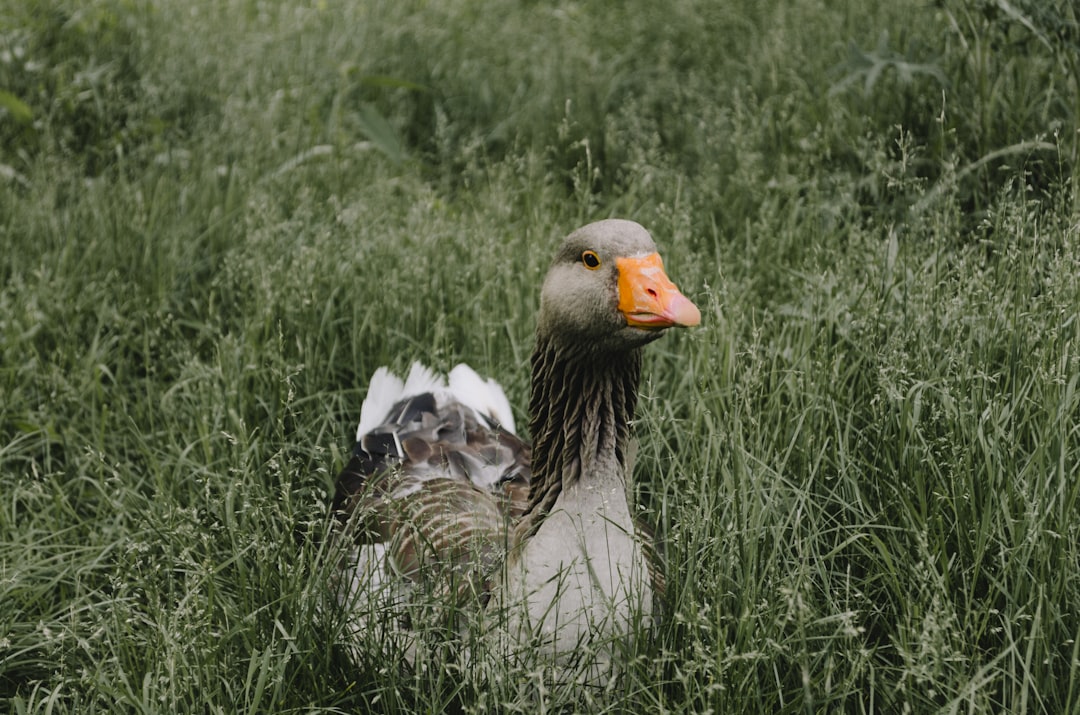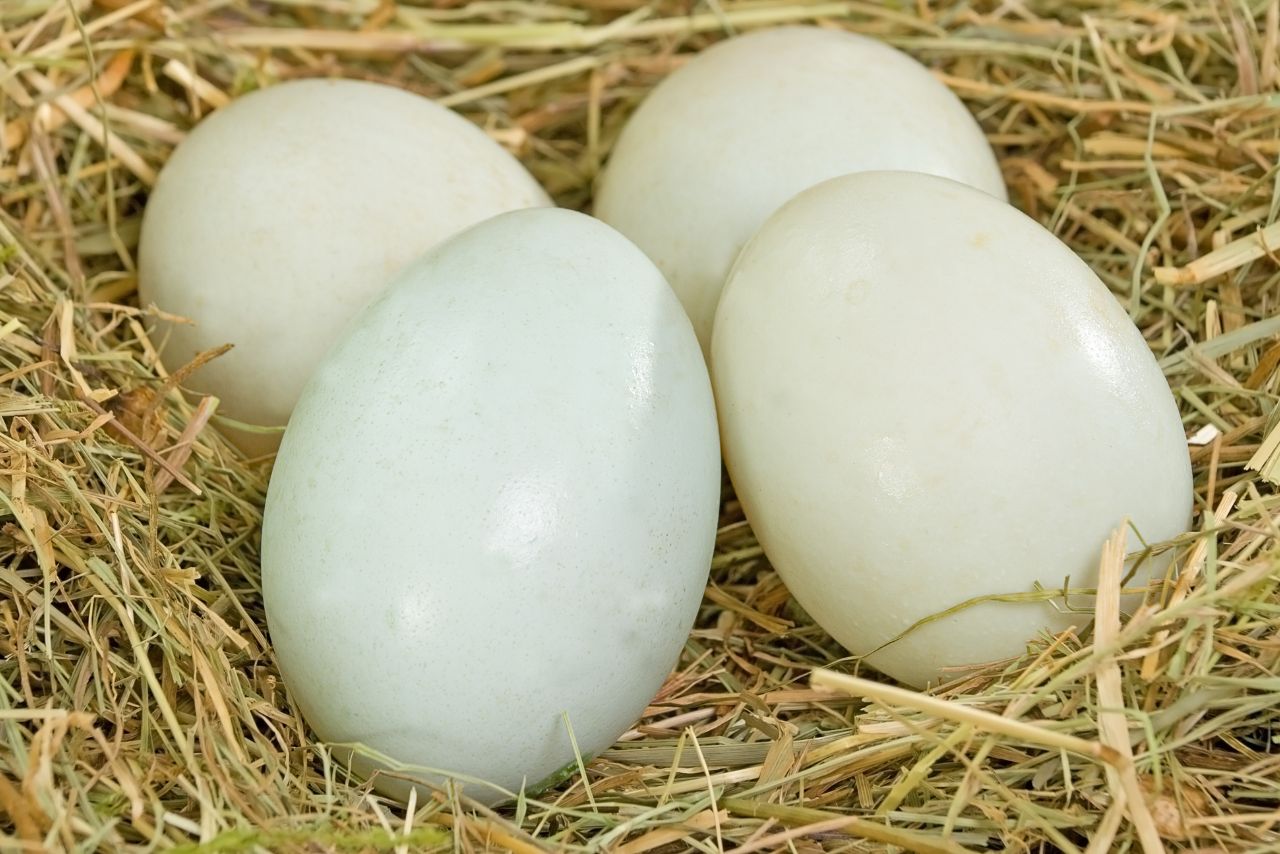Do ducks know if their eggs are dead? This is a common question among people who are curious about the behavior of these water birds.
Ducks are known for their unique nesting habits, where they lay eggs in a carefully constructed nest made from grass, feathers, and other materials. But what happens if an egg is not viable?
Ducks do not possess the ability to detect whether an egg is dead or alive. However, they do have a keen sense of smell that can help them distinguish between their own eggs and those of other ducks.
In this blog post, we will explore the fascinating world of duck behavior and answer this intriguing question.
When a duck lays an egg, she marks it with her scent, which helps her identify it among other eggs in the nest. If an egg is cracked or broken, the odor changes and the duck may abandon the nest.
Do Ducks Know If Their Eggs Are Dead?
Ducks do not have a way to know if their eggs are dead. They cannot see inside the eggs, and they do not have any other senses that would allow them to detect whether or not an embryo is alive.
As a result, ducks will often sit on dead eggs, hoping that they will eventually hatch.
There are a few ways to tell if a duck egg is dead. One way is to candle the egg, which means shining a bright light through it. If the egg is dead, the embryo will not be visible.
Another way to tell if an egg is dead is to listen for movement. If the embryo is alive, you will be able to hear it moving around inside the egg.
If a duck is sitting on dead eggs, she will eventually realize that they are not going to hatch. This can be a frustrating experience for the duck, but she will eventually give up and move on.
Recognition Of Eggs By Ducks
Ducks use their sense of smell to identify their own eggs and will often roll them to ensure they are evenly heated during incubation. They also have an instinct to protect their eggs and will fiercely defend their nests against predators.
It’s amazing to see how these water birds have adapted to their environment and developed unique behaviors to ensure the survival of their offspring.
Ducks are highly attuned to their environment, and they have a good memory. They can recognize their nesting area and the eggs they have laid.
Some Facts About Ducks Knowing Rather Eggs Are Dead Or Not
Some facts about ducks knowing rather eggs are dead or not are described as under:
1. Sense Of Touch
Ducks also have a sense of touch that helps them determine whether their eggs are viable. They can feel the movement and warmth of the developing embryo inside the egg.
This is why ducks will often sit on their eggs, using their body heat to incubate them. If an egg is not developing properly, the duck may abandon it.
They will gently nudge the egg with their bill and can feel the warmth and movement of a developing chick inside.
2. Presence Of Special Hormone Named Prolactin:
In addition to their sense of touch, ducks also have a special hormone called prolactin that helps them recognize and care for their eggs.
Prolactin is released in the female duck’s body when she begins nesting, stimulating her maternal instincts and encouraging her to incubate the eggs.
This hormone also helps the duck allows them to detect the heartbeat of the chick inside the egg. If the egg is dead, they will not sense a heartbeat and will abandon it. recognize her own eggs and distinguish them from those of other ducks.
3. Incubation Of A Nest Of Eggs By Ducks:
Overall, ducks have developed a range of behaviors to ensure successful reproduction and survival of their species.
When a duck is incubating a nest of eggs, she will periodically roll the eggs over to prevent the chick from sticking to the shell. If an egg is dead, it will not move inside the shell and the duck will notice this
4. Sense Of Smell
Ducks also have a keen sense of smell that helps them distinguish between their own eggs and those of other ducks. When a duck lays an egg, she marks it with her scent, which helps her identify it among other eggs in the nest.
If an egg is cracked or broken, the odor changes and the duck may abandon the nest.
Some species of ducks, such as mallards, will use their sense of smell to detect if an egg is rotten or not. They have a highly developed olfactory system and can detect even small amounts of bacteria or decomposition.
5. Ducks Will Occasionally Eat Their Own Eggs.
Ducks are highly protective of their eggs, they may sometimes eat them if they sense that the egg is not viable or if there is a shortage of food. T
his behavior may seem counterintuitive, but it actually helps to ensure the survival of the species. By eating non-viable eggs, ducks prevent predators from finding and consuming them.
6. Dead Eggs Smell Of Ducks
Bad and can have a pungent, rotten smell. The odor is often described as sulfurous or rotten eggs. This smell is due to the decomposition of the egg and the release of gases such as hydrogen sulfide and ammonia.
If a duck detects this smell, she may abandon the nest or remove the dead egg to prevent it from attracting predators.
Do Ducks Know If Their Eggs Are Viable Or Not?

Ducks cannot determine if their eggs are viable or not, they do possess certain behaviors that help them decide which eggs to abandon.
For instance, if an egg does not hatch after a specific number of days, the duck will likely abandon it along with any other unhatched eggs in the nest.
How Do Ducks React To Dead Eggs?
Ducks cannot detect whether their eggs are alive or dead, they have evolved various behaviors to ensure successful reproduction and survival of their species.
Their sense of smell helps them identify their own eggs among others, while their instinct to protect their nests ensures that predators don’t destroy their offspring.
Ducks will typically abandon dead eggs, and they will not continue to sit on them.
They can detect the smell of a dead egg, which is caused by the release of gases as the embryo breaks down. Once they realize that the egg is dead, they will no longer care for it.
How Do You Tell If A Duck Has Died In The Egg?

If a duck has died in the egg, it will not hatch and may even emit a foul odor. The best way to determine if a duck has died in the egg is by candling the egg.
This involves shining a bright light through the shell to see if there is any movement or development inside.
Will Ducks Lay On Dead Eggs?
Ducks will typically abandon dead eggs, and they will not continue to sit on them. However, in some cases, ducks may still lay on dead eggs if they are part of a clutch that contains viable eggs.
This behavior is known as “egg covering” and serves to protect the remaining eggs from predators and the elements.
Do Ducks Mourn On Their Dead Eggs?
There is no clear evidence that ducks mourn their dead eggs. However, they may exhibit some signs of distress if their entire clutch is destroyed or if they lose a mate.
In such cases, they may become restless and vocalize more frequently than usual.
Do Ducks Bury Their Dead Eggs?
Ducks do not bury their dead eggs. They will abandon them or remove them from the nest to prevent any potential health hazards or predators from finding them.
Once a dead egg is removed, it will eventually decompose and become part of the environment.
How Do Female Ducks Care For Their Eggs?

Female ducks care for their eggs by incubating them. They sit on the eggs to keep them warm, turning them occasionally to ensure that they develop evenly.
During this time, the female may leave the nest briefly to feed or bathe, but she will return quickly to continue incubation.
Once the eggs hatch, the female will lead her ducklings to water and teach them basic survival skills such as how to swim and find food. She will also protect her young from predators and other threats.
How Long Will A Duck Sit On Infertile Eggs?
Ducks will typically sit on infertile eggs for the same amount of time as they would on viable eggs, which is about 28 days. During this time, the female duck will continue to incubate the eggs and care for them, even though they will not hatch.
This behavior is due to the fact that ducks cannot determine if their eggs are fertile or not and will continue to care for them until they realize that they are not hatching.
How Long Will A Duck Sit On Dead Eggs?
Once a duck realizes that an egg is dead, she will no longer sit on it. She will abandon the egg or remove it from the nest to prevent any potential health hazards or predators from finding it.
What Happens To Duck Eggs That Don’t Hatch?
Duck eggs that don’t hatch will eventually decompose and become part of the environment. This process is a natural part of the ecosystem and helps to recycle nutrients back into the soil.
In some cases, ducks may abandon their nest if none of the eggs hatch or if they lose interest in caring for them.
If you are raising ducks and notice that none of the eggs have hatched after 28 days, it’s best to remove them from the nest to prevent any potential health hazards or predators from finding them.
What To Do When My Duck Goes Broody On Infertile Eggs?
If your duck goes broody on infertile eggs, it’s important to monitor her behavior and ensure that she is properly caring for the eggs.
You can provide her with easy access to food and water to help prevent restlessness and leaving the nest too frequently.
It’s worth noting that some duck breeds are more prone to going broody than others, so it may be helpful to research your specific breed’s tendencies before breeding.
Conclusion!
Ducks cannot determine if their eggs are dead or not, they have evolved various behaviors and senses that help them ensure successful reproduction and survival of their species.
As caretakers of ducks, it is important to monitor their behavior and provide them with the proper care and attention they need to thrive.
If you notice any abnormal behavior or have concerns about your duck’s health, it is always best to consult with a veterinarian or an experienced duck breeder for guidance.
By taking the necessary precautions and providing proper care, you can help your ducks successfully hatch healthy chicks and contribute to the preservation of these beautiful birds.
FAQs
Can Ducks Determine if Their Eggs Are Dead?
No, ducks cannot determine if their eggs are dead or not.
How Do Ducks Ensure Successful Reproduction and Survival of Their Species?
Ducks rely on their instinctual behaviors and senses to protect their eggs and ensure successful reproduction and survival of their species.
What Happens to Duck Eggs that Don’t Hatch?
Duck eggs that don’t hatch will eventually decompose and become part of the environment.
What Should I Do if My Duck Goes Broody on Infertile Eggs?
Monitor her behavior and ensure that she is properly caring for the eggs. You can provide her with easy access to food and water to help prevent restlessness and leaving the nest too frequently.
How Long Can a Duck Egg Be Cold Before It Dies?
The exact amount of time that a duck egg can be cold before it dies varies depending on the specific circumstances, but if the egg’s temperature drops below the ideal range for an extended period of time, the embryo inside may not survive.




